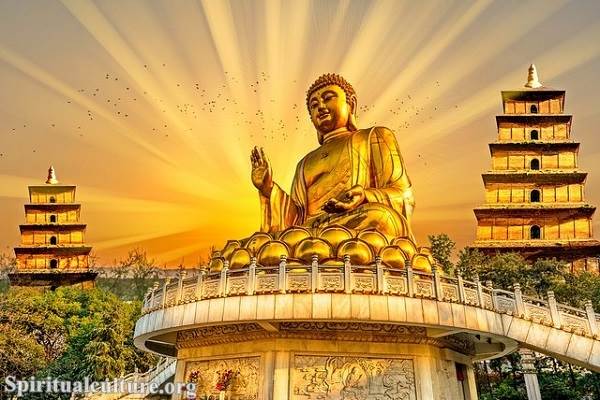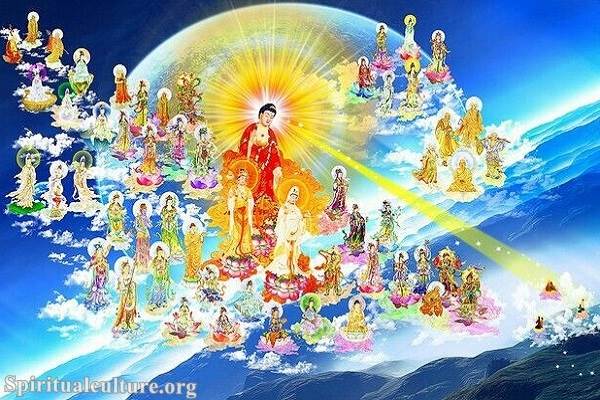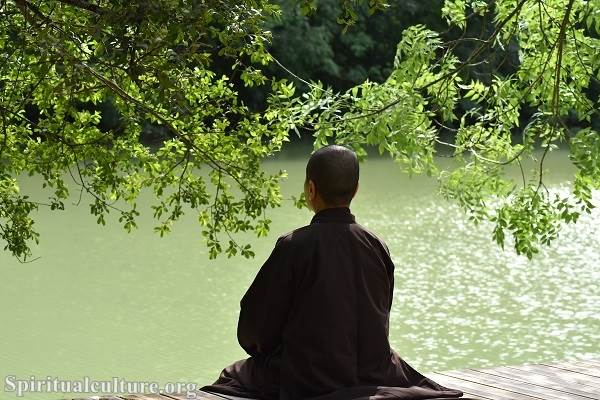Thich Nhat Hanh’s quotes are often simple but profound, encouraging people to live in the present moment and cultivate a deep understanding of themselves and the world around them. Here are some interpretations of his famous quotes meaning:
1. “Smile, breathe, and go slowly.”
This quote, attributed to Thich Nhat Hanh, offers a simple yet powerful reminder to slow down and be present in the moment.
“Smile” suggests that we approach the situation with a positive attitude, even if things may not be going as planned. “Breathe” reminds us to take deep breaths and be mindful of our breathing, which can help reduce stress and anxiety. Finally, “go slowly” encourages us to take our time and not rush through things, which can help us be more mindful and attentive.
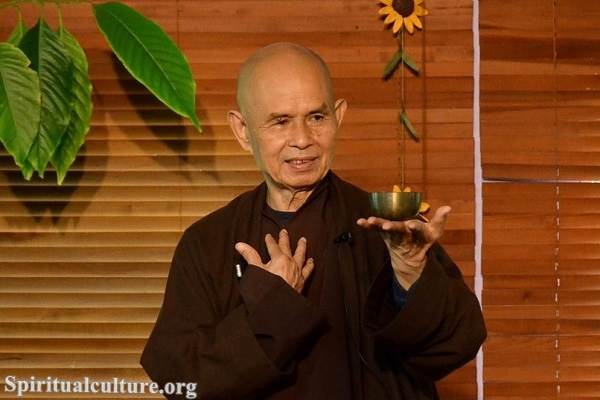
In our fast-paced world, it’s easy to get caught up in the hustle and bustle of everyday life. Taking a moment to smile, breathe, and go slowly can help us reconnect with ourselves and our surroundings, and bring a sense of calm and peace to our lives.
2. “Peace is every step.”
Peace is not something that we have to seek outside of ourselves or in some distant place or time. Instead, it is something that we can cultivate and experience in every moment of our daily lives.
Thich Nhat Hanh teaches that we can bring peace into our lives by being fully present and mindful in everything that we do, whether we are walking, eating, working, or interacting with others. By cultivating inner peace and a sense of calm and harmony within ourselves, we can create a ripple effect that spreads out to our surroundings and to the people we come into contact with.
This quote reminds us that we have the power to create peace in our lives and in the world around us, and that we can do so by taking small steps in our daily lives. By being mindful and present in each moment, we can cultivate a sense of inner peace that radiates outwards and touches the lives of those around us.
3. “The present moment is the only moment available to us, and it is the door to all moments.”
This quote, attributed to Thich Nhat Hanh, highlights the importance of mindfulness and living in the present moment.
The present moment is the only moment that we truly have, and it is the point of connection between our past and our future. By focusing our attention on the present moment, we can learn to let go of regrets and worries about the past or the future, and cultivate a greater sense of peace and contentment in our lives.
This quote also suggests that the present moment is not just a point in time, but rather a doorway to all moments. By fully embracing the present moment and living in the here and now, we can learn to access deeper levels of awareness and insight that can help us to navigate the challenges of life with greater ease and grace.
In essence, this quote reminds us that our lives are made up of a series of moments, and that the quality of our lives depends on the quality of the moments that we experience. By living mindfully and fully embracing the present moment, we can learn to open ourselves up to the richness and beauty of life in all its forms, and create a life that is truly worth living.
4. “We have to walk in a way that we only print peace and serenity on the Earth. Walk as if you are kissing the Earth with your feet.”
This quote, attributed to Thich Nhat Hanh, is a beautiful reminder to be mindful and present in our actions, and to cultivate a sense of peace and harmony in our relationship with the Earth.
When we walk in a way that prints peace and serenity on the Earth, we are not only benefiting ourselves, but also the world around us. By being mindful and present in each step we take, we can connect with the Earth in a more profound way, and we can appreciate the beauty and richness of the natural world.
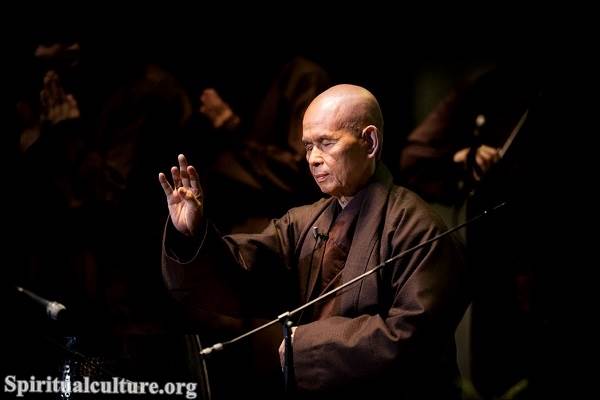
Walking in this way also means being aware of our impact on the environment, and taking steps to reduce our carbon footprint and live in a more sustainable way. It means respecting the Earth and treating it with kindness and care, as if we were kissing it with our feet.
This quote encourages us to approach our relationship with the Earth with a sense of reverence and gratitude, and to be mindful of the impact of our actions on the world around us. By walking in a way that prints peace and serenity on the Earth, we can create a more peaceful, harmonious, and sustainable world for ourselves and future generations.
5. “To be beautiful means to be yourself. You don’t need to be accepted by others. You need to accept yourself.”
This quote, attributed to Thich Nhat Hanh, is a powerful reminder that true beauty comes from within, and that it is important to embrace and accept ourselves for who we are.
In a world that often values external appearances and social acceptance, it can be easy to lose sight of our own intrinsic worth and beauty. However, when we learn to accept ourselves and embrace our unique qualities and traits, we can cultivate a deep sense of inner beauty and confidence.
Rather than seeking acceptance and validation from others, we can learn to value and appreciate ourselves for who we are, with all our strengths, weaknesses, quirks, and imperfections. This can help us develop a more positive and healthy relationship with ourselves, and can also enable us to form deeper and more authentic connections with others.
In essence, this quote reminds us that beauty is not about conforming to external standards or seeking approval from others, but rather about embracing our own unique selves and living authentically from a place of self-love and self-acceptance.
6. “When we recognize the virtues, the talent, the beauty of Mother Earth, something is born in us, some kind of connection, love is born.”
This quote, attributed to Thich Nhat Hanh, highlights the importance of cultivating a deep connection with the natural world.
By recognizing the virtues, talents, and beauty of Mother Earth, we can learn to connect with the world around us in a more profound and meaningful way. We can begin to see the world as a living, breathing organism, full of wonder and beauty, and we can develop a deep sense of love and respect for all of the beings that share this planet with us.
This quote also suggests that the act of recognizing and appreciating the natural world has the power to transform us at a deep level. When we connect with the world around us in a meaningful way, we begin to see ourselves as part of a larger whole, and we develop a sense of empathy and compassion for all living beings.
In essence, this quote invites us to approach the world with a sense of wonder, gratitude, and reverence, recognizing the beauty and complexity of the natural world, and cultivating a deep sense of love and connection that can transform our lives and the world around us.
7. “The most precious gift we can offer anyone is our attention. When mindfulness embraces those we love, they will bloom like flowers.”
This quote, attributed to Thich Nhat Hanh, emphasizes the importance of mindfulness and attention in cultivating deep and meaningful relationships with the people we care about.
By offering our full and undivided attention to someone, we communicate that they are valued and important to us. In a world where distractions are everywhere and our attention is often divided, the gift of focused attention can be a rare and powerful thing.
When we practice mindfulness in our interactions with loved ones, we become more fully present and aware of their needs and emotions. This allows us to respond with greater compassion, empathy, and understanding, which can help them to feel seen, heard, and validated.
Just as flowers need water, sunlight, and attention to thrive, our relationships also require care and attention to flourish. When we offer our mindful attention to the people we love, we create an environment in which they can grow and bloom, becoming their fullest and most beautiful selves.
8. “The true miracle is not walking on water or walking in air, but simply walking on this earth.”
This quote, attributed to Thich Nhat Hanh, emphasizes the value and wonder of the everyday experiences that we often take for granted.
While many of us may be drawn to stories of extraordinary feats and seemingly impossible accomplishments, this quote reminds us that there is beauty and magic to be found in the ordinary moments of life.
Walking on this earth may not seem particularly miraculous, but it is a powerful reminder of our connection to the natural world and the profound gift of being alive.
By cultivating a sense of mindfulness and presence in our everyday experiences, we can learn to appreciate the small miracles that surround us – the feeling of sun on our skin, the sound of birds singing, the taste of a delicious meal.
Ultimately, this quote suggests that we can find joy and wonder in the simple act of being alive and present in the world around us, rather than constantly seeking out the extraordinary or the sensational.
9. “Understanding means to look deeply into something, to see its true nature.”
This quote, attributed to Thich Nhat Hanh, emphasizes the importance of looking beyond surface appearances and gaining a deeper understanding of the true nature of things.
To truly understand something, we must take the time to look deeply, to examine its inner workings, its interconnections with other things, and its underlying essence.
This requires us to approach things with an open mind and a willingness to let go of preconceptions and biases. By cultivating a sense of curiosity and wonder, we can learn to see things in a new light and gain a deeper appreciation for their complexity and beauty.
Whether we are seeking to understand another person, a work of art, a scientific concept, or a natural phenomenon, this quote reminds us that true understanding requires us to go beyond the surface level and to look deeply into the heart of things. In doing so, we can develop a more nuanced and compassionate perspective on the world around us, and deepen our appreciation for its many wonders.
10. “The practice of mindfulness helps us to touch the wonders of life within and around us.”
This quote, attributed to Thich Nhat Hanh, highlights the transformative power of mindfulness in our daily lives.
Mindfulness is the practice of paying attention to the present moment, with a non-judgmental and accepting attitude. It can help us to cultivate a deeper sense of awareness and connection with ourselves, others, and the world around us.
By practicing mindfulness, we can learn to appreciate the many wonders of life that are often overlooked or taken for granted. We may find ourselves more fully present and engaged in our experiences, and able to connect with a sense of joy and gratitude for the beauty and complexity of the world.
This practice can help us to develop greater resilience in the face of life’s challenges, as we learn to observe and accept difficult thoughts and emotions without getting caught up in them.
Ultimately, this quote suggests that mindfulness can be a powerful tool for touching the wonders of life within and around us, helping us to cultivate a deeper sense of connection and meaning in our lives.
11. “No mud, no lotus. Without suffering, there can be no happiness. So we shouldn’t discriminate against the mud. We have to learn how to embrace and cradle our own suffering and the suffering of the world, with a lot of tenderness.”
This quote, attributed to Thich Nhat Hanh, is a powerful reminder of the interconnected nature of suffering and happiness.
The lotus flower is often used as a symbol of beauty and purity, but it is also a plant that grows in muddy, murky waters. In other words, the lotus can only bloom because of the mud in which it grows. Similarly, the quote suggests that our own suffering can be a source of growth and transformation, leading us towards greater happiness and fulfillment.
The quote also invites us to embrace our own suffering and the suffering of others with tenderness and compassion. Instead of pushing away our pain or trying to avoid it, we can learn to hold it gently and with kindness, recognizing that it is an essential part of the human experience.
By embracing our suffering in this way, we can learn to transform it into something positive, using it as a catalyst for growth and transformation, and ultimately leading us towards greater happiness and inner peace.
In essence, this quote reminds us that suffering is an essential part of the human experience, and that by learning to embrace and cradle our own suffering with tenderness and compassion, we can transform it into something beautiful and transformative, paving the way towards greater happiness and fulfillment in our lives.
12. “If we are peaceful, if we are happy, we can smile and blossom like a flower, and everyone in our family, our entire society, will benefit from our peace.”
This quote, attributed to Thich Nhat Hanh, emphasizes the importance of cultivating inner peace and happiness, not just for ourselves, but for those around us as well.
The quote suggests that when we are at peace and happy, we have the ability to positively influence those around us. Our joy and contentment can spread like the fragrance of a flower, touching the lives of those around us and creating a ripple effect of positivity and kindness.
This quote also invites us to recognize the interconnected nature of our lives. Our peace and happiness are not just individual experiences, but are intimately connected to the well-being of our families and society as a whole.
By cultivating inner peace and happiness, we can become agents of positive change in the world, spreading joy and kindness wherever we go and creating a more harmonious and peaceful society.
In essence, this quote encourages us to approach our lives with a sense of mindfulness and compassion, recognizing the interconnected nature of our existence and the power that we have to positively influence those around us through our own inner peace and happiness.
13. “You are like a candle. Imagine you are sending light out all around you. All your words, thoughts and actions are going in many directions. If you say something kind, your kind words go in many directions, and you yourself go with them.”
This quote, attributed to Thich Nhat Hanh, is a beautiful metaphor that encourages us to be mindful of the impact of our words, thoughts, and actions on the world around us.
The quote suggests that we are like candles, emitting light that touches everyone and everything around us. Every word we speak, every thought we think, and every action we take sends out ripples of energy that affect the people and world around us.
The quote reminds us that the energy we put out into the world has the power to inspire and uplift those around us, just as a candle illuminates a dark room. When we speak and act with kindness, compassion, and love, we create a positive energy that radiates outwards, touching the lives of those around us and making the world a brighter and more beautiful place.
Ultimately, this quote invites us to be mindful of our words, thoughts, and actions, recognizing the power that we have to make a positive impact on the world around us. It encourages us to use our energy to spread love and kindness, knowing that every kind word and action has the power to uplift and inspire those around us.
14. “If you love someone but rarely make yourself available to him or her, that is not true love.”
This quote, attributed to Thich Nhat Hanh, highlights the importance of showing up and being present for the people we love.
The quote suggests that love is not just a feeling, but an action. It is not enough to simply feel love for someone; we must also express that love through our actions and our presence.
The quote implies that true love requires a willingness to be fully present and available for the people we care about. This means making time for them, showing up for them when they need us, and being willing to put in the effort to nurture and sustain our relationships.
The quote also suggests that when we fail to show up and be present for the people we love, we are not truly loving them. This implies that love is not just a one-way street; it requires a reciprocal effort from both parties.
Ultimately, this quote invites us to reflect on our own relationships and ask ourselves whether we are truly showing up and being present for the people we love. It encourages us to prioritize our relationships and to make the effort to be fully present and available for those who matter most to us.
15. “We are here to awaken from our illusion of separateness.”
This quote is attributed to Thich Nhat Hanh, and it speaks to the idea that our sense of separateness from others and from the world around us is an illusion.
The quote suggests that at our core, we are all interconnected and part of a larger whole. However, our minds and egos often create the illusion that we are separate and distinct individuals, disconnected from others and the world.
The quote invites us to awaken from this illusion by recognizing the interconnectedness of all things and cultivating a sense of unity and compassion towards others. By doing so, we can shift our perspective from one of separation and isolation to one of interconnectedness and interdependence.
This quote also suggests that awakening from our illusion of separateness is not just a personal journey, but a collective one. It invites us to recognize that we are all in this together and that the well-being of one is intimately connected to the well-being of all.
Ultimately, this quote is a call to cultivate a sense of oneness and interconnectedness in our lives and to recognize that we are not separate individuals, but rather integral parts of a larger whole.
16. “When you love someone, the best thing you can offer is your presence.”
This quote, attributed to Thich Nhat Hanh, emphasizes the importance of being fully present and attentive when we love someone.
The quote suggests that being present is the most valuable gift we can offer to someone we love. This means being fully engaged and focused on the person in front of us, listening to them without distraction, and giving them our full attention.
The quote also implies that simply being physically present is not enough. To truly offer our presence, we must be emotionally present as well, tuning in to the person’s needs and feelings, and responding with empathy and compassion.
By offering our presence in this way, we demonstrate our love and care for the other person, and we create a deeper connection and sense of intimacy in the relationship.
Overall, this quote reminds us of the importance of being present and attentive in our relationships, and it highlights the value of our undivided attention as a gift to those we love.
17. “Breath is the bridge which connects life to consciousness, which unites your body to your thoughts.”
This quote, attributed to Thich Nhat Hanh, highlights the important role of the breath in connecting the body and mind, and in bringing us into the present moment.
The quote suggests that the breath serves as a bridge between our physical bodies and our thoughts and consciousness. It is through the breath that we can bring awareness and attention to our inner experiences, and connect with our thoughts and emotions in a more direct and embodied way.
The quote also implies that the breath can help to anchor us in the present moment. By focusing on the sensation of the breath as it moves in and out of our body, we can let go of distractions and worries, and become more fully present to the here and now.
Overall, this quote reminds us of the powerful connection between the breath, the body, and the mind, and encourages us to use the breath as a tool for cultivating mindfulness and presence in our lives.
18. “Letting go gives us freedom, and freedom is the only condition for happiness. If, in our heart, we still cling to anything – anger, anxiety, or possessions – we cannot be free.”
This quote, attributed to Thich Nhat Hanh, emphasizes the importance of letting go of attachment in order to experience true freedom and happiness.
The quote suggests that holding onto anger, anxiety, or possessions creates a sense of entanglement and constriction, preventing us from experiencing true freedom and happiness. Only by letting go of these attachments can we truly be free.
The quote also implies that freedom is an inner state of being, rather than something that is dependent on external circumstances or possessions. True freedom and happiness come from within, and are not dependent on external factors.
Overall, this quote encourages us to cultivate a sense of detachment and letting go in our lives, in order to experience greater freedom and happiness. By recognizing the impermanence of all things and letting go of our attachment to them, we can cultivate a greater sense of inner peace and contentment.
19. “We need enlightenment, not just individually but collectively, to save the planet.”
This quote, attributed to Thich Nhat Hanh, emphasizes the importance of enlightenment and collective action in addressing the challenges facing our planet.
The quote suggests that individual enlightenment is not enough to solve the environmental and social problems we face as a society. Rather, we need a collective awakening to the interconnectedness of all things, and a collective commitment to taking action to protect the planet and promote sustainability.
The quote also implies that our current environmental crises are rooted in a lack of awareness and understanding of the interconnectedness of all things. Only by cultivating a greater sense of interconnectedness and interdependence can we hope to address the root causes of these problems.
Overall, this quote reminds us of the urgent need for collective action and enlightenment in addressing the environmental and social challenges facing our world today. It encourages us to work together to promote sustainability and protect the planet for future generations.
20. “Hope is important because it can make the present moment less difficult to bear. If we believe that tomorrow will be better, we can bear a hardship today.”
This quote, attributed to Thich Nhat Hanh, highlights the importance of hope in helping us to cope with difficult situations and challenges.
The quote suggests that hope can provide us with a sense of optimism and positive anticipation for the future, which can help us to persevere through difficult times. If we believe that things will improve in the future, we may be more likely to endure and overcome current difficulties.
At the same time, the quote acknowledges that the present moment can be difficult and challenging. Hope does not necessarily eliminate present hardships, but it can help to make them more bearable by giving us something positive to focus on.
Overall, this quote reminds us of the importance of cultivating hope in our lives. By maintaining a sense of optimism and positive anticipation for the future, we can better cope with present difficulties and work towards a better tomorrow.
